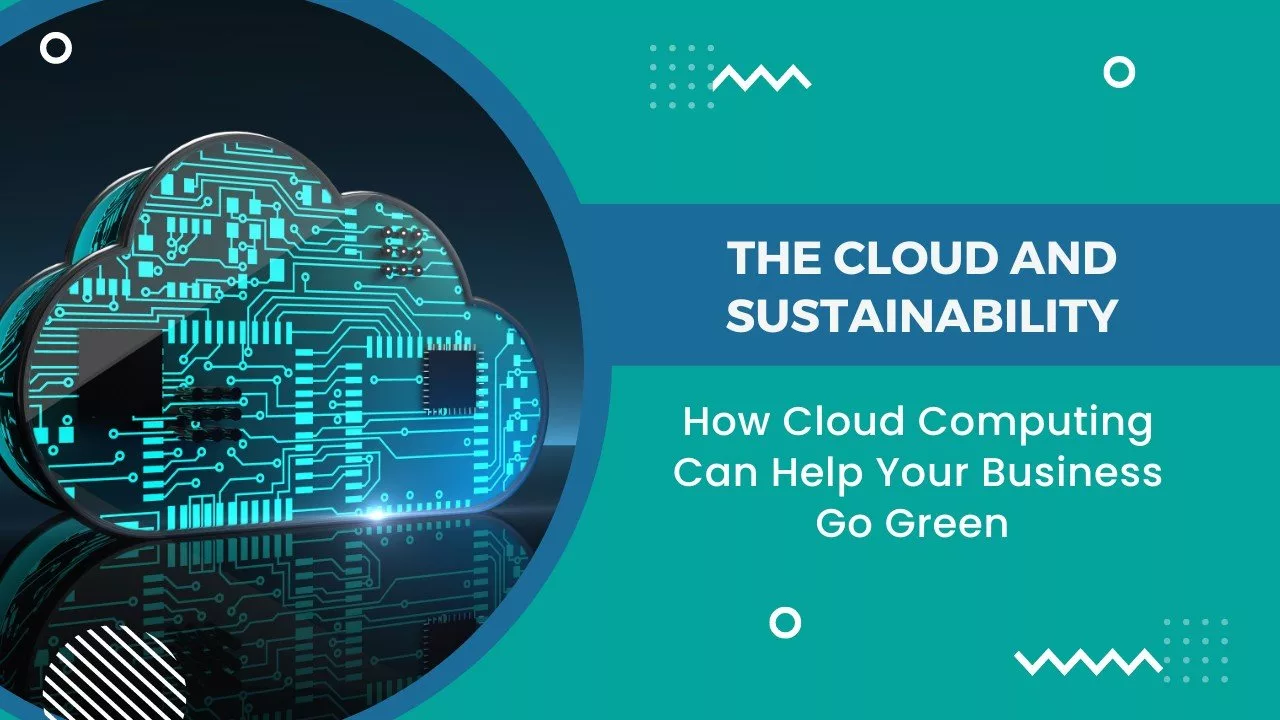As businesses around the world become increasingly aware of their environmental impact, the need for sustainable solutions has never been more pressing. One area where sustainability can be significantly improved is in information technology (IT) infrastructure.
Traditional IT setups often consume vast amounts of energy and generate substantial carbon emissions. However, with the advent of cloud computing, companies now have a powerful tool that can help them reduce their environmental footprint and transition to a more sustainable future.
In this article, we will explore the role of cloud computing in promoting sustainability and how it can benefit businesses in their journey to go green.
Introduction
In this digital age, the demand for IT services and storage has skyrocketed. Many businesses rely on extensive server rooms and data centers to handle their computing needs. However, these traditional setups are not only costly but also inefficient and environmentally unfriendly.
The cloud offers a compelling alternative, providing scalable and efficient computing resources that can be accessed on-demand. By leveraging the power of the cloud, businesses can reduce their energy consumption, minimize waste, and contribute to a more sustainable planet.
Understanding Cloud Computing
Before delving into the environmental benefits of cloud computing, it’s essential to have a clear understanding of what it entails. Cloud computing involves the delivery of computing services over the internet, including storage, servers, databases, software, and more. Instead of relying on local infrastructure, businesses can tap into remote servers and resources hosted in data centers managed by cloud service providers. This shift from on-premises infrastructure to the cloud brings numerous advantages in terms of sustainability.
The Environmental Impact of Traditional IT Infrastructure
Traditional IT infrastructure relies heavily on physical servers, each consuming substantial amounts of electricity. These servers require extensive cooling systems to maintain optimal operating temperatures, resulting in even higher energy consumption. Additionally, many of these servers operate at low utilization rates, wasting energy and contributing to unnecessary carbon emissions. The environmental impact is further compounded by the significant amount of electronic waste generated by outdated or retired hardware.
The Role of Cloud Computing in Sustainability
Cloud computing offers several key features that make it a greener alternative to traditional IT infrastructure.
Energy Efficiency in Cloud Data Centers
Cloud service providers invest heavily in optimizing the energy efficiency of their data centers. These facilities are designed to maximize cooling efficiency and reduce power consumption through advanced infrastructure management techniques. By consolidating servers and using virtualization technologies, cloud data centers can achieve higher utilization rates and minimize energy waste.
Virtualization and Resource Optimization
Virtualization allows multiple virtual machines to run on a single physical server, effectively maximizing resource utilization. This consolidation leads to reduced energy consumption, as fewer physical servers are needed to handle the same workload. By optimizing resource allocation, businesses can minimize their carbon footprint while still meeting their computing requirements.
Scalability and Flexibility
Cloud computing offers unparalleled scalability, enabling businesses to scale their infrastructure up or down based on demand. This elasticity ensures that resources are allocated efficiently, preventing over-provisioning and unnecessary energy consumption. When demand decreases, businesses can scale down their resources, thereby reducing their environmental impact.
Reduced Hardware Waste
By leveraging the cloud, businesses can significantly reduce their hardware waste. With traditional setups, hardware often becomes obsolete or underutilized, leading to the disposal or inefficient use of resources. In contrast, cloud services allow businesses to rely on shared infrastructure, eliminating the need for excessive hardware and reducing electronic waste.
Renewable Energy Integration
Many cloud service providers are committed to using renewable energy sources to power their data centers. By investing in solar, wind, or hydroelectric power, these providers reduce their reliance on fossil fuels and minimize their carbon emissions. Businesses that choose cloud services from such providers indirectly contribute to the adoption of renewable energy, further promoting sustainability.
Reducing Carbon Footprint
Cloud computing can significantly reduce the carbon footprint of businesses. By leveraging the energy-efficient infrastructure and optimized resource allocation offered by cloud service providers, companies can achieve substantial energy savings. These energy savings translate into reduced carbon emissions, helping businesses play their part in mitigating climate change.
Cloud Computing and Paperless Operations
The cloud also facilitates the adoption of paperless operations. By storing data and documents digitally, businesses can reduce their reliance on paper and minimize their impact on forests. Cloud-based document management systems and collaborative platforms enable seamless file sharing and real-time collaboration, eliminating the need for printing and physical document storage.
Collaboration and Remote Work
Cloud-based collaboration tools have revolutionized the way businesses operate. These tools enable remote work and virtual collaboration, reducing the need for employees to commute and lowering overall carbon emissions associated with transportation. By embracing cloud-based solutions, businesses can promote a more sustainable work environment while enhancing productivity and employee satisfaction.
Cloud-Based Communication Solutions
Cloud-based communication solutions, such as VoIP (Voice over Internet Protocol) and video conferencing, offer efficient alternatives to traditional communication methods. These solutions eliminate the need for physical infrastructure and travel, leading to reduced energy consumption and fewer carbon emissions. Businesses can hold meetings, connect with clients, and communicate internally without the need for extensive travel, contributing to a greener future.
Green Initiatives by Cloud Service Providers
Many cloud service providers have adopted green initiatives to further promote sustainability. They invest in renewable energy projects, optimize their infrastructure for energy efficiency, and develop programs to minimize waste and emissions. By partnering with environmentally conscious cloud providers, businesses align their operations with sustainability goals and contribute to a cleaner planet.
Challenges and Considerations
While cloud computing offers significant environmental benefits, there are challenges and considerations to keep in mind. These include data security and privacy concerns, reliance on internet connectivity, potential vendor lock-in, and the need for proper migration planning. Businesses should carefully evaluate these factors and work with reputable cloud service providers to address any potential risks.
Need help on maintaining Azure Security Center Secure Score of Clients?
Our experts can help you on all kinds of works on Azure Security Center.








